In years past, Donald Trump has declared he is “all for” EVs, but you’d have a hard time believing it based on the claims made during a weekend campaign rally. Declaring battery power a “hoax,” the presumptive GOP nominee for president insisted there are “no chargers,” and that EVs are so heavy they’d destroy every bridge in the country. He also warned during a stop in Las Vegas that electric boats can’t float, among other problems.
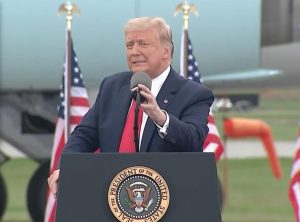
Trump has claimed to be in favor of EVs but has largely spoken out against mandates calling for more of them.
If you had any question as to where Republican presidential candidate Donald Trump stands on EVs, you only need check out his comments made during a campaign rally in Las Vegas over the weekend.
While Trump has insisted he is “all for electric cars,” he want on a long rant that attacked all form of battery-powered vehicles, including not only EVs but electric boats, as well.
The former president was not nearly as pro-EV as he once sounded, during his term in office from 2017-2021 taking several steps to rollback regulations aimed at increasing sales of zero-emissions vehicles. His increasingly strident – and often inaccurate – rhetoric comes shortly after a meeting with fossil fuel industry executives during which he promised his support in return for $1 billion in campaign contributions.
False claims
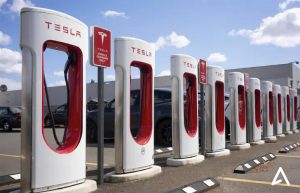
There are, in fact, close to 200,000 chargers in the U.S., including around 37,000 public quick chargers.
While speaking in Las Vegas, Trump made a number of inaccurate and, in some cases, totally false claims about battery-electric vehicles:
- He declared there are no chargers available. In fact, there are now about 168,000 available, with hundreds more going in every month, according to federal and industry data. About 37,000 are public quick chargers;
- He claimed EVs are anywhere from two to three times heavier than similar gas-powered models. With a handful of exceptions, such as the extended-range Chevrolet Silverado EV, most run from 500 to 1,500 pounds more;
- Playing off that false claim, Trump said “they have to fix every bridge in the US to handle the weight.” Considering most bridges are designed to handle semi-trucks that can weigh 70,000 pounds or more, that’s also inaccurate.
Even the Tesla Semi is only about 2,000 pounds heavier than a diesel-powered cab – and the reality is that freight haulers compensate by reducing cargo loads.
This won’t float your boat
During the rally, Trump also took aim at battery-electric boats, even though there’s still relatively little momentum for them to play a major role in either the shipping or recreational markets.
Trump declared battery-powered boats “sink because they are heavy.” That doesn’t appear to be based on any reality. There is a small but growing market for electric boats, everything from jet skis to ferries, and there have been no reports that they are too heavy to stay afloat.
Trump also claimed that using electric propulsion would be dangerous, especially if the boat were to start sinking. As EV website Electrek noted, “electrocution is not a major concern of electric boats because batteries are well sealed and isolated, and also electricity dissipates quite fast in any significant body of water, like an ocean since Trump was talking about sharks being present.
More EV news
- Biden announces sweeping tariffs on Chinese EVs, batteries, minerals
- Trump Vows to Reverse Biden EV, Environmental Policies
- New EPA Rules Would Drive Big Jump in EV Sales
Why the aggressive anti-EV rhetoric?
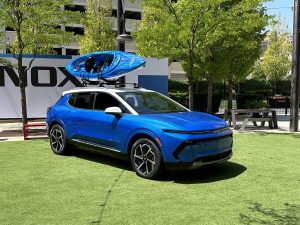
EV sales growth has slowed sharply in recent months and analysts say anti-electric rhetoric has played a part.
Several factors appear to be in play. For one thing, there appears to be an opportunity to make it an issue in the 2024 presidential campaign, Michael McKenna, a Republican strategist and energy lobbyist who worked in the Trump White House, told the New York Times.
“It’s a solid second tier issue, with a special salience in Michigan, Pennsylvania and Ohio for obvious reasons,” the paper quoted McKenna. “Are people going to vote on it? Probably it’s not going to be their main driver. But is it going to be a secondary confirmation thing? Yes.”
There’s also the question of whether Trump sees this as an opportunity to raise cash. During a meeting with senior fossil fuels executives at his Mar-a-Lago resort in Florida last month, Trump reportedly said he would reverse a wide range of rules and regulations enacted by Biden. That includes a freeze on liquified natural gas exports. In turn, Trump called on the industry leaders to raise $1 billion for his campaign.
The lobbying group, the American Fuel & Petrochemical Manufacturers, already has committed to a “seven-figure” campaign against what it is calling “Biden’s EPA car ban.” It is focused on a number of key swing states in the coming election
Biden and Trump do have some common ground
The presumptive Democratic and Republican candidates have agreed on one key topic: the need to put new tariffs on Chinese-made EVs.
During his time in the White House, former President Trump called for 100% tariffs on such imports, though he didn’t follow through.
Last month, the current president followed through with a fourfold increase from the current, 25% tariffs on Chinese EVs. Biden also enacted a big increase in tariffs on Chinese-made batteries and their raw materials.
GOP leaders follow Trump’s lead

VA Gov Glenn Youngkin is pulling his state out of the consortium adopting California’s tough emissions mandates.
The former president has set the tone for the GOP, as a whole, on a variety of talking points during the 2024 campaign.
Last week, Virginia Gov. Glenn Youngkin announced that he was pulling the state out of a consortium of states that have adopted the strict emissions standards put in place by California – 17 states, in all, plus the District of Columbia. Youngkin called the mandates “misguided,” declaring in a statement that, “The idea that government should tell people what kind of car they can or can’t purchase is fundamentally wrong.”
GOP leaders in a number of states, especially those considered critical to the upcoming election, have also taken aim at the Biden administration’s support for EVs, including federal tax credits for buyers.

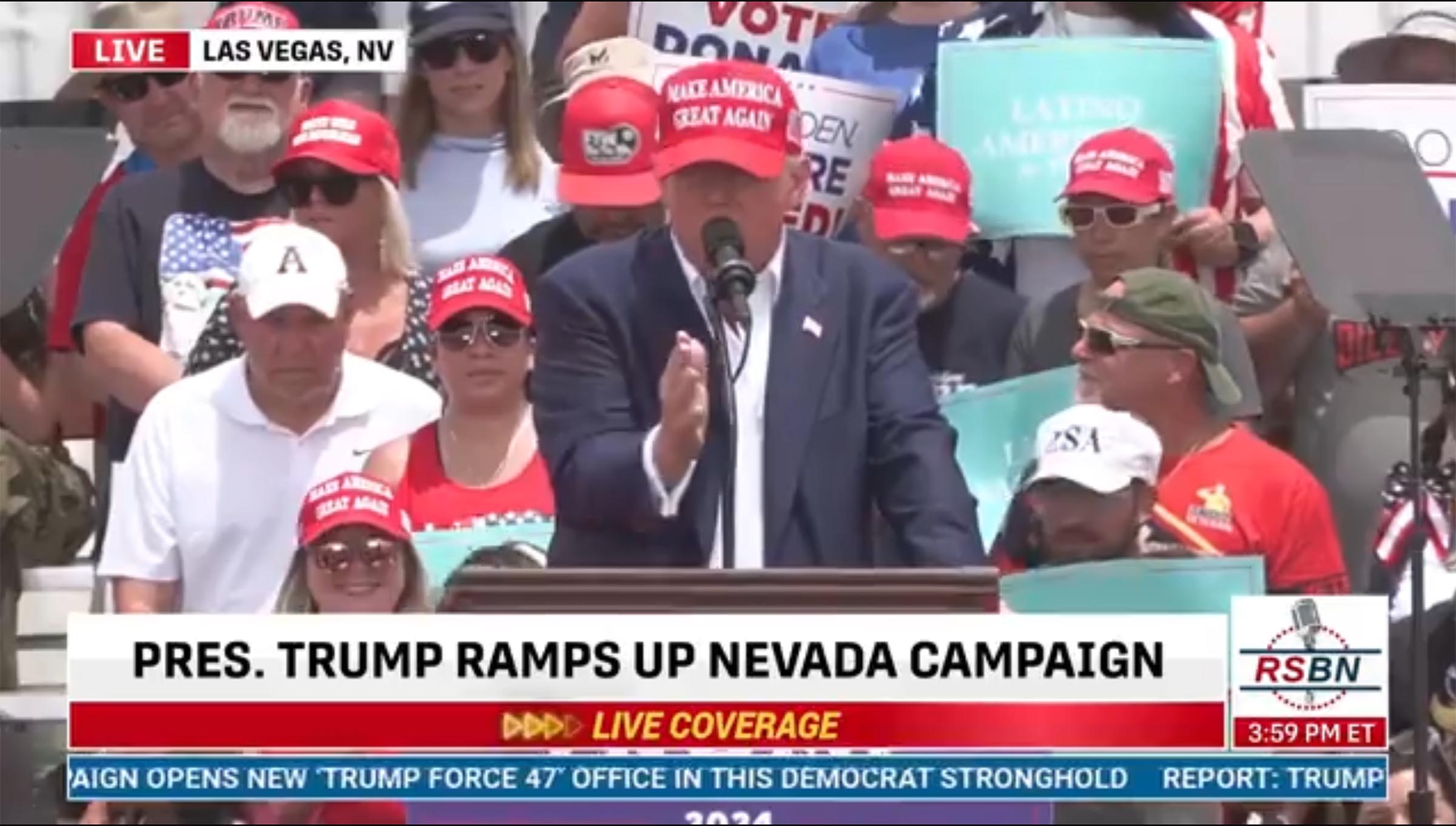
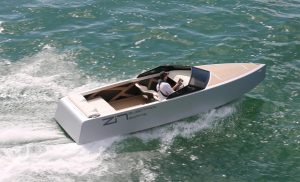
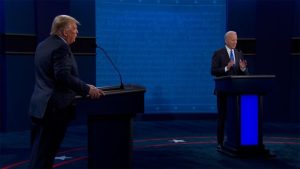
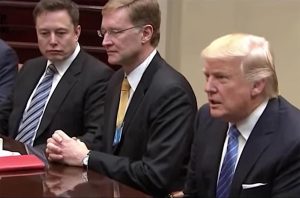
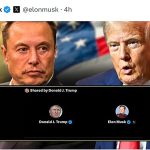



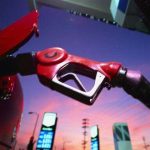
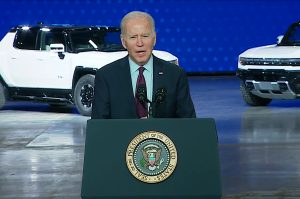

You have your head in the sand if you don’t believe everything Trump said is true (though slightly exagerated). Roads and bridges were/are designed for ‘usual’ vehicle weights, not EVs.
Between my house and work there are at lease 20 gas stations I can buy gas; I know of NO EV charge points. I change my EV at home, always. Even if I knew of a public charger, the rate would probably far exceed what I pay.
Interesting that there is absolutely no talk about the horror Chicago EV owners ran into this winter, the inability to charge because of very low temps.
Responsible journalism requires you to leave your biases at home.
LMAO, Dave. No, he didn’t just exaggerate, he lied and/or totally misconstrued. The infrastructure nonsense is part of an aggressive anti-EV campaign. As I noted, the oil industry lobbying groups have already acknowledged major spending on this topic. If this were true, the country’s bridges would have collapsed already as the switch from small to medium-sized passenger cars to larger, heavier SUVs, CUVs and pickups already have led to a substantial increase in average vehicle weight. You could have checked this out, if you weren’t drinking the Kool-Aid, by checking government and industry data. Yes, EVs are heavier. The weight differential is not considered an issue any more than the switch to light trucks by the people who actually maintain infrastructure. I actually have done research on this, BTW.
As to charging, see the numbers I posted. And note I have referred to “charging deserts” in a number of stories. In fact, there are fewer and fewer of these all the time. There are 100s of new public chargers going in by the week. An example: between my house and cottage — a 45-mile distance going west from Detroit — has seen at least eight new charge stations gone in over the last 18 months. And I believe I’ve missed some others. Same going north all the way to Charlevoix and Traverse City. Are there places where chargers are needed? Many. And? This isn’t going to happen overnight. It is happening rapidly. FYI, we own an F-150 Lightning. We have charged publicly 6 times since August 2022. Not for lack of public charging but because the 300-mile range is absolutely fine for almost everything we do but for long-distance trips, having chargers at home and cottage.
As to cost? Michigan has high-cost electricity. Even then, I’m paying one-third as much per mile v a comparable gas F-150. Using public chargers I am paying about 70-80% of gas, so still saving money. These are annualized numbers accounting for poorer range in winter. (And for the lower mileage a gas vehicle gets, as well.)
Not everyone should buy an EV now and for a variety of reasons. But millions can and millions are finding they serve their needs admirably. The numbers rise annually.
Oh, and Chicago was a flike. Recall the inability to pump gas a few years back because of storms in Michigan during Dream Cruise.
Oh, and last week, my Lightning kept my fridge running when power went down during storms. I would’ve lost over $400 in food ahead of a party if I didn’t have bidirectional charging. Oh, since you’d ask, the system automatically cuts out at a pre-set point so I’d still have power to drive. As I did. The charging station 3 miles away didn’t lose power.
Responsible journalism is what I practice. And I write about EV problems as much as their positives. I do not, however, tell folks batteries are so heavy electric boats will sink or that there are “no” public chargers.
I’m afraid you have far more than your head in the sand, Dave.
Paul A. Eisenstein
It’s just a boatload of crazy coming from Trump. Also, not to put too fine a point on it, but almost all boats – even sail boats – have batteries because, you see, they have lights and other things that run on electricity.